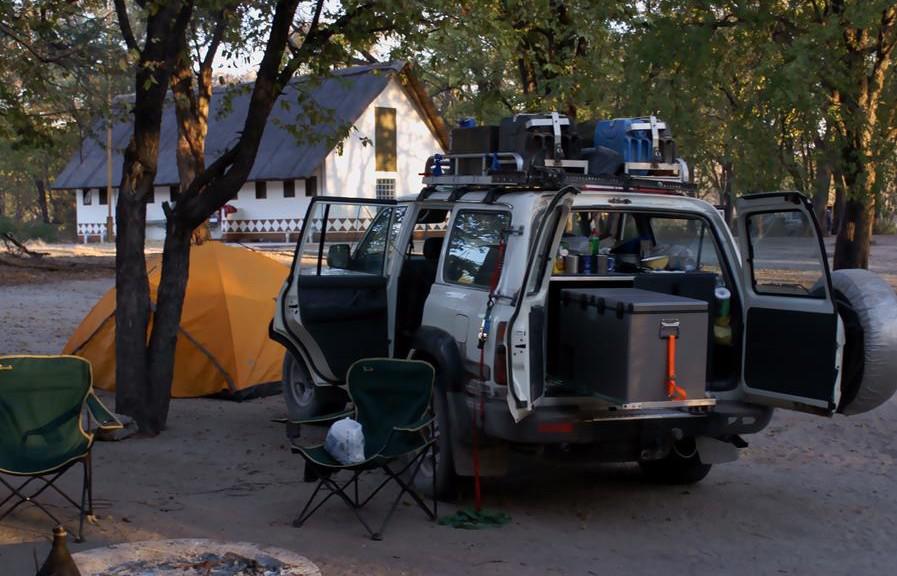The days when you could go off into the bush to ‘get away from it all’ are long gone. The modern traveller simply cannot go camping without having electricity to power all the electrical equipment that we need to stay in touch and camp comfortably.
Your most important needs for electrical power on a camping expedition will be to charge your cell phone, laptop, camera equipment and fridge/freezer. If you are going on an extended trip or plan on doing regular camping trips you would be wise to have a few USB ports, preferably 2.1 Amp capacity, installed in your vehicle for charging equipment while you drive.

Inverters
Some people install inverters which convert 12 V direct current into 220 V alternating current. This means they don’t have to take a 12 V power supply along for every one of their electronic accessories but can simply plug their 220 V adapters into the inverter.
However, you should not be totally dependent on an inverter to power or charge your accessories as the quality and reliability of inverters vary widely and the more powerful inverters have significant ’stand-by’ consumption – the power used when the inverter is on but not powering equipment. Hence an inverter may drain your battery power.
Make sure your inverter is securely mounted, with enough ventilation to prevent heat build-up, and that it is protected against dust. This is especially important with inverters that have internal cooling fans.
Dual battery systems
If you have a fridge/freezer in your vehicle or trailer you should seriously consider fitting a dual battery system if your secondary battery is not routinely linked to the main battery.
With such a system your mobile freezer can run off its own dedicated battery and will not drain the vehicle’s starter battery. Other 12 V accessories like camp lights, inverters, electrical compressors, etc. can also be moved to the auxiliary battery.
Dual battery systems add to the complexity of your vehicle’s electrical system, and failures – although not common – are not unknown. Conventional systems need to have the auxiliary battery close to the starter battery to prevent cable power loss. More advanced systems are available that provide the convenience of having the batteries further apart, but they cost more and cannot charge the auxiliary battery as quickly as conventional systems.
What many people don’t realise is that battery capacity is like a bank loan. Even if you increase your battery capacity (loan), your sustainable power consumption (spending) is still limited by your alternator power (income). Most batteries will not fully recover their charge on a trip once drained; vehicle alternators simply weren’t made to recondition batteries. Therefore, although dual battery systems do protect your vehicle’s starter battery, they aren’t a blank cheque for unlimited power usage.
Look for a dual battery system that has at least a low-voltage alarm, and preferably also a so-called bridge function, with which you can connect your starter and auxiliary batteries together in emergencies. This is useful for winching or for when the starter battery is flat.
You should also consider fitting an electrical socket to your vehicle or trailer to connect an extension lead from the campsite’s electricity point. You can then recharge or power your equipment from the camp’s electricity rather than from your battery. A small battery charger connected to a camp power supply may also provide you with battery top up capability.
Solar panels
A dual battery system will support your electrical needs for as long as you drive for a few hours per day. However, when you stand over for two or more days in the bush without access to electricity, you will need to find alternative ways, like solar panels, to power your electrical equipment. Have a look at a previous article on this blog specifically about solar panels.
Portable generators
To take a generator along is way too luxurious. The whole idea is to try and get away from it all and not to make yourself unpopular in a campsite if you start up one as most people go to remote areas to experience peace and quiet.

